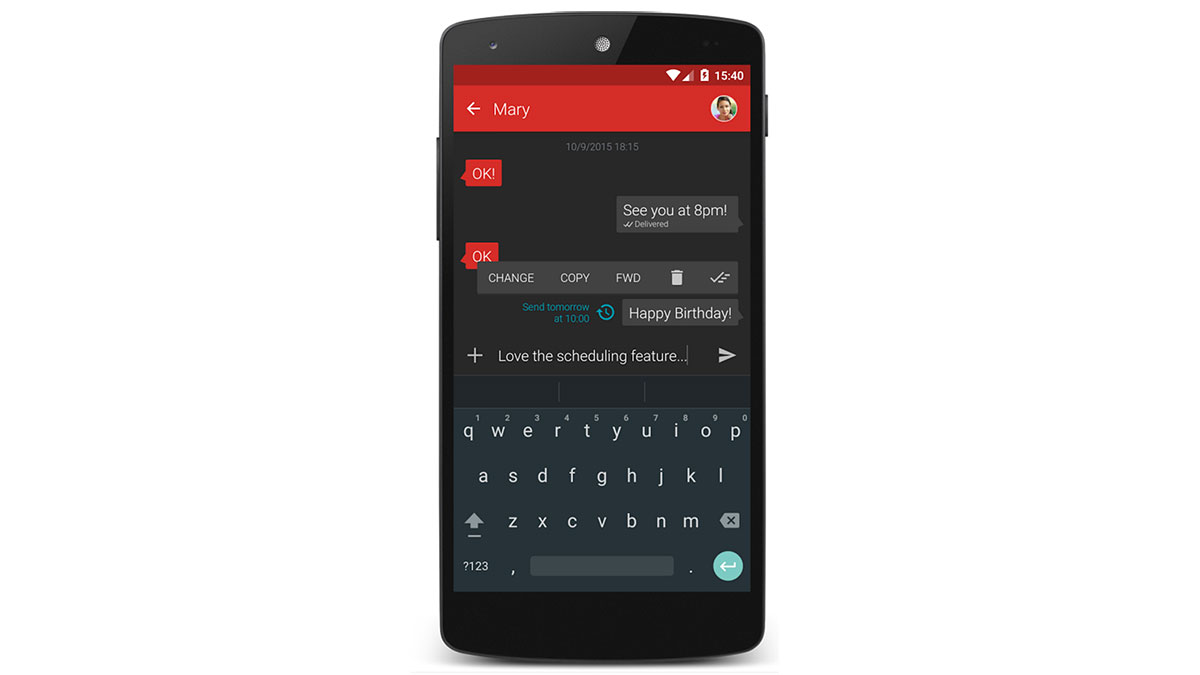 Supplied
SuppliedThree high school students have teamed up with a University of Alberta professor to hack into the issue of cyberbullying.
The student-professor team has created a text checking app, called Sentiment Keyboard, as part of the Ross and Verna Tate High School Internship Program. Under the guidance of computing scientist Denilson Barbosa, students Jacob Reckhard, Christopher West, and Ibrahim Elmallah have provided Android users a way to check text messages for negativity before pressing send.
“Many kids know when they’re being mean — sometimes they’re being mean intentionally,” Barbosa said. “But if the keyboard can warn them, ‘Hey this looks offensive,’ most kids would at least pause and reconsider.”
The app replaces the enter button on a keyboard with a “check” button that reads the text message before sending. If the message is potentially harmful, the keyboard says “This may be offensive.” If not, the keyboard says, “That text is fine.” After thinking about what was written, users can send the text by long-pressing the “check” button.
Barbosa, who works with text-analyzing databases, gave his three high school summer students the option of which project to complete to make sure they could relate. The students then worked in the lab full-time alongside Barbosa’s undergraduate and graduate students for six weeks. Barbosa said the high school students were treated like university students. Barbosa called his summer high school students “exceptional.”
“They really embraced the idea (of the keyboard),” he said. “They were very competent.”
Despite the short duration of the internship, Barbosa said he was happy with the final product in its app form.
“Instead of just testing out ideas we were able to go the extra mile,” he said.
Barbosa still hopes to see the app improve in the next summer if West and Elmallah, who are still in high school, decide to participate in the program again. Barbosa would like to see the app pinpoint the source of a text’s negativity and tell the writer what exactly is wrong. He would also like the app to understand slang, not just standard English.
“In reality, the keyboard would not understand the slang that cool kids use in school today,” he said. “But that can be done.”
Reckhard, who is now in his first year of Engineering at the U of A, had made other phone apps in the past, but he said these weren’t as complex as the Sentiment Keyboard. He added that he valued the opportunity to collaborate with Barbosa’s other, more experienced, students. The app is important as an anti-bullying tool, Reckhard said.
“It can really be used to help slow down cyberbullying,” he said. “It gives users that second thought before they send the message, to realize if (it’s) going to be hurtful or not.”




